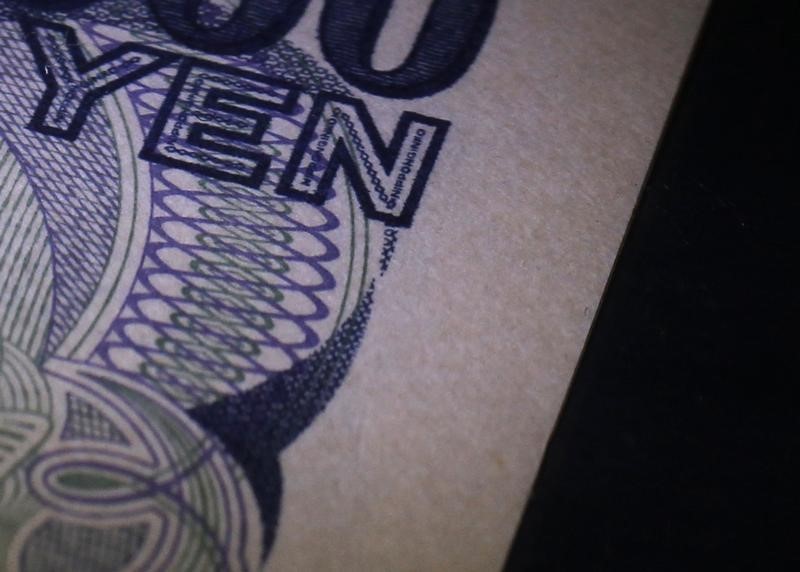Bank of America just raised its EUR/USD forecast
(Corrects yen moves in headline, lead and penultimate
paragraph)
By Kate Duguid
NEW YORK, Feb 28 (Reuters) - The U.S. dollar slid to a
20-week low against the Japanese yen on Friday after Federal
Reserve Chair Jerome Powell suggested the central bank could cut
interest rates in the wake of the coronavirus.
Powell on Friday said the central bank will "act as
appropriate" to support the economy in the face of risks posed
by the coronavirus outbreak, though he said the economy remained
in solid condition. The Japanese yen JPY= was on track for its largest daily
gain since May 2017 as investors moved into the safe-haven
currency. It had strengthened to as high as 107.52 versus the
dollar and was last trading up 1.51% at 107.92.
The dollar index was last down 0.324% to 98.127 =USD , down
about 1% this week on rising expectations of a rate cut. A cut
of at least 25 basis points at the Fed's March meeting was fully
priced in on Friday, versus expectations of 57.6% on Thursday.
Some investors suggested the Fed could even cut rates
sooner.
"It's likely that markets will force the Fed to cut even
before the March 18 meeting, and the question is, will that
matter? Will that be enough to settle down markets in the near
term?" said Bill Zox, chief investment officer at Diamond Hill
Capital.
The yield on the two-year Treasury note US2YT=RR , which
moves with expectations of changes in rate policy, has fallen by
about 32.5% this week.
The rapid spread of the coronavirus increased fears of a
pandemic, with six countries reporting their first cases and the
World Health Organization (WHO) raising its global spread and
impact risk alert to "very high". "The yen is significantly stronger from where it was even
last week, when I was hearing people saying that the yen wasn't
a safe-haven anymore. We're now back to appropriate levels,"
said Mark McCormick, global head of foreign exchange strategy at
TD Securities.
McCormick said one additional factor undermining the yen
could be the fact that Japan's public pension funds have been
rebalancing assets.
"I think it's pretty clear that the (Japanese Government
Pension Investment Fund) is trading ahead of the announcements
of their weights, which if you think about what they've done
over the past five years, they've created an allocation that
leans much more towards global equities, global credit, global
fixed income - which in this environment would see dollar-yen
rally as they're pushing some of their flows outside of Japan."
